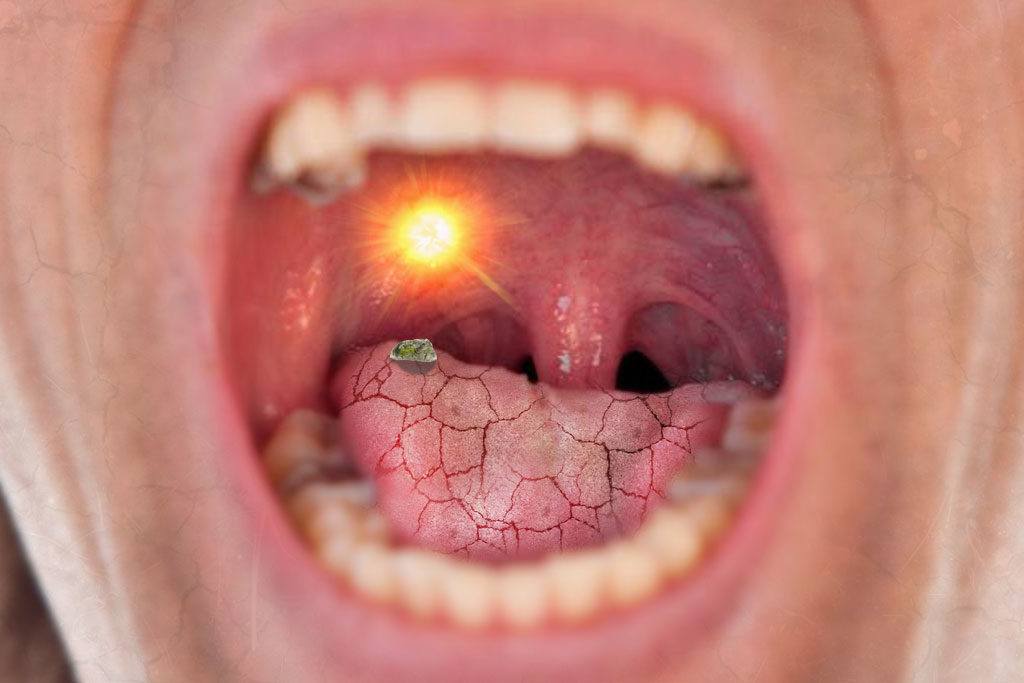Why Does My Mouth Feel Dry With Braces?

Dry mouth is common after getting braces, though not all people experience this symptom. Your mouth might feel dry for several reasons, including irritation that reduces your saliva production, general dehydration, and secondary effects when you change your habits to accommodate your new braces.
If you’re experiencing dryness in your mouth, increased thirst, cracked lips, or thick saliva and difficulty swallowing after getting braces, there are lots of things you can do to feel more comfortable and reduce dry mouth.
Why Does Your Mouth Feel Dry After Braces?
When you have braces put on, they take up more space in your mouth, rub against your cheeks and lips, and can cause some discomfort as you adjust.
In some patients, the minor irritation of adjusting to braces causes a decrease in saliva production. This makes one’s mouth feel dry or sticky, and occasionally contributes to difficulty swallowing.
Keep in mind, too, that your diet changes when you get braces. When you stop eating salty foods like chips and popcorn, put away the chewing gum, and especially if you eat and drink less frequently due to oral tenderness, that can cause dehydration and dry mouth.
Waking up with a dry mouth is a sign that your braces may also be causing you to breath differently in your sleep.
Some people find that they are more prone to sleep with an open mouth during orthodontic treatment, and breathing through your mouth dries out your mouth and lips overnight.
If you smoke, use tobacco products, eat a diet high in sodium, consume lots of caffeine, or drink alcohol, you’re much more likely to find yourself thinking: my mouth is so dry with my braces!
Do braces cause chapped lips?
Lips get chapped when you’re dehydrated or when conditions strip them of moisture.
You might notice that braces make your lips dry because you’re breathing through your mouth, changing your diet, or getting a little dehydrated.
Do braces make you have bad breath?
Braces themselves don’t cause bad breath, but they may be a secondary cause if your mouth is getting dry or you’re having trouble keeping up with your oral hygiene.
You can avoid bad breath with braces by brushing often, using the cleaning implements your orthodontist gave you, and tending to your braces after every meal to ensure that food particles don’t get stuck in your brackets where they can grow bacteria.
Staying well hydrated and eating a healthy diet is also quite effective at keeping your breath fresh.
How to Keep Your Mouth Moist With Braces
There are lots of ways you can remedy or prevent dry mouth with braces. Here’s what to do to keep your mouth moist, healthy, and as comfortable as possible:
1: Avoid dry mouth triggers.
Tobacco, alcohol, smoking anything, spicy/salty/dry foods, and caffeine consumption all contribute to dry mouth even without braces. Avoid these things if you’re experiencing dryness after orthodontic treatment.
Use an alcohol-free mouthwash, and eat foods that are naturally high in moisture like fruits, high-moisture vegetables, soups, and smoothies.
2: Suck (don’t chew) on ice chips or semi-frozen melon pieces.
First of all, never chew on ice. It’s horrible for your teeth and especially bad with braces.
When your mouth is irritated and adjusting to a new set of braces, though, sucking on crushed or chipped ice can help soothe discomfort, reduce swelling, and keep your mouth moist.
Partially freezing small pieces of cucumber or melon is another way to help with irritation, and the flavor is more pleasant than ice by itself.
You can also suck on sugar-free candies to help promote saliva production. Just don’t bite on hard candy.
3: Stay hydrated.
Most people don’t drink enough water.
Be sure to drink plenty of good, clear water throughout the day. Sodas, juices, coffee, tea, and other beverages don’t hydrate like water does.
For those who don’t like the taste of plain water, sliced cucumber, lemon, and/or mint can help improve the flavor. Consider using a good water filtration system if your tap water has an unpleasant taste or smell.
4: Use a humidifier.
The air in your home can get dry, especially at night when your heaters are more likely to run.
That dry air saps the moisture from your body, and if you’re breathing through your mouth in your sleep, you’re going to lose a lot more moisture and wake up dehydrated.
Using a humidifier is surprisingly effective at helping you stay more hydrated and comfortable. Turn on a vaporizer or humidifier before bed if you’ve been waking up with a parched mouth and lips, or keep it running throughout the day if you live in a dry climate and need the extra moisture.
Be sure to drink plenty of water in the meantime, and remember that you use a humidifier to slow dehydration, not as a substitute for consumption.
Braces can definitely be uncomfortable. They’re way better than they used to be, but any time you’re going to move your teeth and jaw around, there’s bound to be a little bit of discomfort. Remember that the treatment is temporary, while your great smile and healthy mouth last for decades. The dry mouth will pass. Hang in there.




